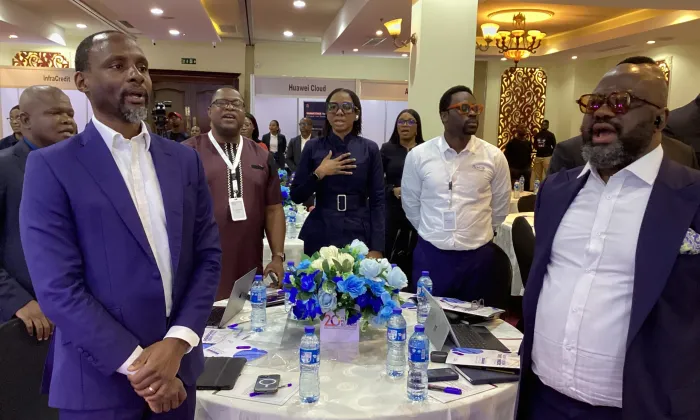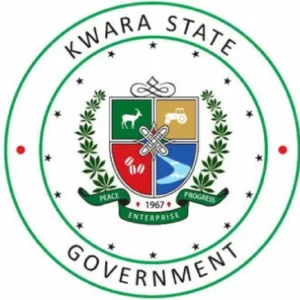PenCom, PenOp move to allow MPP accommodate more workers without pension

L-R: Acting Director General National Pension Commission Omolola Oloworaran (middle); CEO, Pension Fund Operators Association of Nigeria, Mr. Oguche Agudah, with other dignitaries at the Micro Pension Plan Industry Stakeholders’ Engagement Forum organized by PenCom and Penop in Lagos on Thursday.
Nike Popoola
The National Pension Commission (PenCom) and Pension Operators Association of Nigeria (PenOp), are making moves to enable workers currently not making pension savings under the Contributory Pension Scheme (CPS) to join the Micro Pension Plan (MPP).
The workers include those currently without any form of pensions, and those who have left their former employers under the CPS, and want to join the MPP.
MPP refers to an arrangement under the CPS that allows the self-employed and persons working in organisations with less than three employees to make financial contributions towards the provision of pension at their retirement or incapacitation.
The pension operators are also working on incentives that will attract more workers into the MPP.
While giving her keynote address at the Micro Pension Plan Industry Stakeholders’ Engagement Forum organized by PenCom and Penop in Lagos on Thursday, Acting Director-General, PenCom, Mrs. Omolola Oloworaran, said, the theme, “Reimagining Micro Pension Plan: Balancing Service, Policy, and Health,” captures the essence of what the MPP represents as a tool for transforming the lives of ordinary Nigerians.
She said, to maximize the impact of the MPP, PenCom is embarking on a series of transformative initiatives which are, “Market Segmentation: Tailoring the MPP to address the unique needs of different informal sector groups.
“Rebranding: Giving the plan a new name and identity to resonate more with the target audience and drive engagement.
“Robust Technology: Partnering with Fintechs and telco companies to create a seamless, user-friendly platform for contributions and withdrawals to enable us scale, drawing inspiration from successful models in Kenya, Rwanda, South Africa, and Botswana.
“Incentives: Exploring ways to provide tangible benefits, such as microloans or health insurance linkages, to incentivize participation.”
While noting that the potential is staggering with over 77.5 million workers in the informal sector, she said that modest participation in the MPP could unlock billions of naira in savings, transforming individual lives and the national economy.
The Head, Micro Pensions Department PenCom Babatunde Alayande, while making a presentation titled, ‘Overview of the Micro Pension Plan’, spoke on the need for incentives to make the MPP more attractive and accommodate the target market.
Head, Micro Pension Unit, Stanbic IBTC Pension, Okhueleigbe John, said there should be policies targeted at specific segments to grow the MPP, financial literacy, private public partnerships, different ways to generate funding to drive incentives for the scheme, as well as the need to review the pricing of micro pension to make it attractive to investors.
Also speaking, Dr. Shem Ouma of Kenya APSA, urged the operators to have inbuilt benefits by introducing incentives that will make the MPP attractive, make the payment system flexible for the contributors, and drive the scheme through technology.




